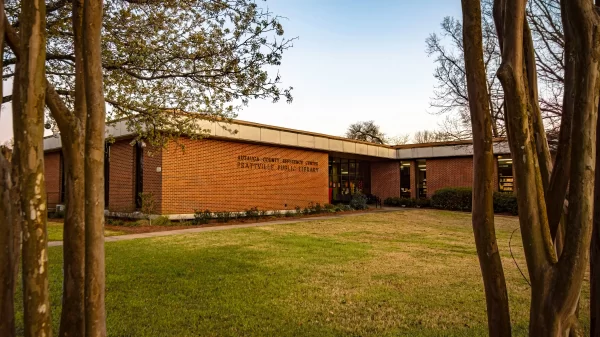|
Getting your Trinity Audio player ready...
|
Alabama’s reliance on fees and fines in the justice system creates a vicious cycle for those with the inability to pay, experts said during a panel hosted by Alabama Values and The Beacon Center on Monday.
“The area of fees and fines creat and produce a cycle of not only poverty, but we also see a level of escalation that happens when individuals have an inability to pay,” said Pastor Richard Williams with The Beacon Center.
Williams said there is a lack of awareness of the fines and fees that come during the justice process and individuals are often unprepared to pay. In addition to the court-mandated fines and fees, Williams said that people often struggle with the bonds process and the expenses there.
Montgomery District Judge Tiffany McCord said judges have to balance the importance of fines and fees as a deterrent with the possibility of minor offenses leading to financial ruin for the people facing charges.
“The court system is set up to be a deterrent to committing crimes,” McCord said. “It is not set up to be a place where people are going to lose their jobs … or be unhoused.”
McCord said people should know that judges can remit fines and fees or substitute community service in many situations, and said she sees judges every day trying to ensure the courts are just and not burdensome on individuals.
One area in which the court cannot remit costs, McCord noted, is restitution. Alabama law prohibits judges from remitting those costs.
Public defender Aylia McKee said people are sometimes too embarrassed to tel the court about their financial struggles, leaving out important information in the assessment of fines.
Williams says if the defendant is using drugs, that creates another barrier.
“Simultaneously some people are walking through addiction, and so the question is when some’s walking through addiction, should we tell the person that they should go to a job or go to drug treatment. Should they go detox or should they raise this money to pay a fee or fine,” Williams said. “I would dare to say that the individual should spend time doing drug treatment, they should spend time acknowledging what harms have been done, they should spend time working through so that they could be a better human.”
The free Next Steps program at The Beacon Center helps people struggling with the justice system get back on their feet. McCord said the only issue with the program is that it is only offered in Montgomery, but needs to be available statewide.






















































